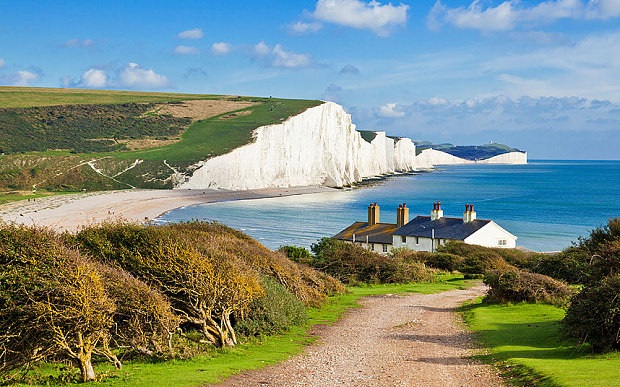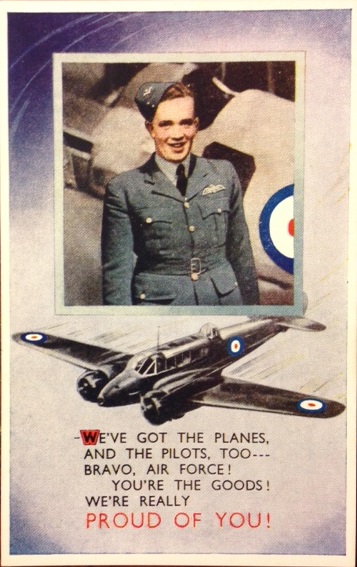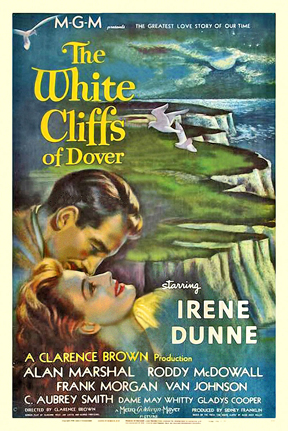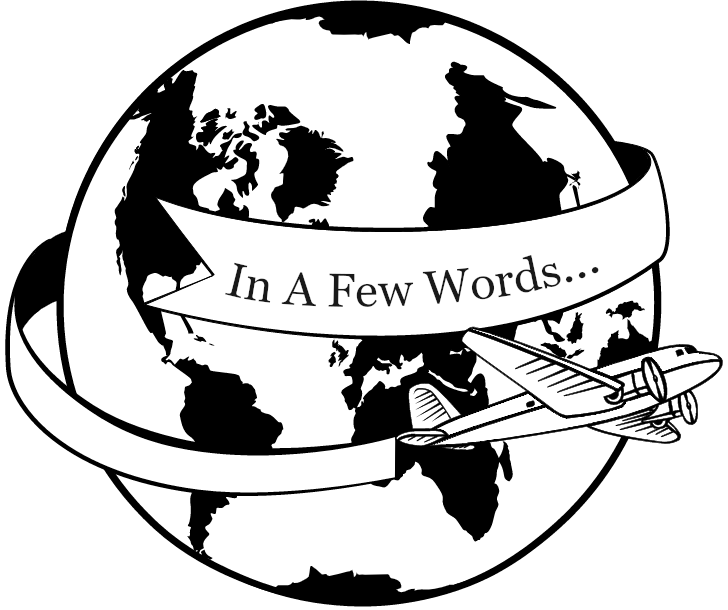Composed by Walter Kent, 1941
Lyrics by Nat Burton
First recording by vocalist Vera Lynn
IN MEMORIUM
Vera Lynn
1917-2020
The Voice of England’s Unofficial Hymn
The White Cliff of Dover
There’ll be bluebirds over
The white cliffs of Dover,
Tomorrow, just you wait and see.
There’ll be love and laughter
And peace ever after.
Tomorrow, when the world is free.
The shepherd will tend his sheep.
The valley will bloom again.
And Jimmy will go to sleep
In his own little room again.
There’ll be bluebirds over
The white cliffs of Dover,
Tomorrow, just you wait and see.
The shepherd will tend his sheep.
The valley will bloom again.
And Jimmy will go to sleep
In his own little room again.
There’ll be bluebirds over
The white cliffs of Dover,
Tomorrow, just you wait and see.

The White Cliffs of Dover was written before the United States joined the war effort in order to lift the spirits of the Allies at a time when Nazi Germany had conquered much of Europe and was actively bombing Britain. Walter Kent, an American working in London, composed the song shortly after the British Royal Air Force (RAF) and the German Luftwaffe started regular aerial dog-fights over the cliffs near Dover during the Battle of Britain (circa late June 1940 until the end of October).
The lyrics refer to the RAF and RCAF (Royal Canadian) fighter pilots (in their blue uniforms) as “bluebirds” and expresses confidence that they would prevail during those dark days. The second verse* (seldom sung and never recorded) contains references such as “Thumbs Up!” which was a RAF and RCAF signal asking permission to commence their assigned mission and “flying in those angry skies” where the air war was taking place. The lyrics also look toward a time when the war would be over and peace would reign over the iconic white cliffs, Britain’s de facto border with the European mainland. Glenn Miller recorded the first American version of the song in November 1941.
§ Hear Verna Lynn sing the song on YouTube.com. Go to https://www.youtube.com/watch?v=WAaxkAgVkHQ.
White Cliffs of Dover; Verse Two
“I’ll never forget the people I met …
Braving those angry skies …
I remember well as the shadows fell …
The light of hope in their eyes …
And though I’m far away I still can hear them say …
Thumbs up …
For when the dawn comes up …
There’ll be bluebirds over …
The white cliffs of Dover …
Tomorrow, just you wait and see.”
Photo credits:
Image of Vera Lynn, 1943. Postcard courtesy K. Fletcher, Ipswich, England
Image of Glenn Miller, 1945. Postcard courtesy K. Fletcher, Ipswich, England
Image of RAF Pilot, circa 1942. Postcard courtesy of Hal Ottaway, Wichita, Kansas, USA
Image of 1944 MGM movie postcard. Postcard courtesy K. Fletcher, Ipswich, England





The song and Vera Lynn are icons in Britain. For information: #The RAF had a considerable number of non-British pilots incl a good few Polish. #I always thought the reference to bluebirds was their sign of happiness (for when the war would be over) and I have non-war ephemera (incl birthday cards) that shows these birds. #The reference to little Jimmy sleeping in his own room is a reference to evacuee children – the upheaval to our little island was horrendous as a result of the war. The Ephemera Album Facebook group is marking the 80th ann of events during… Read more »